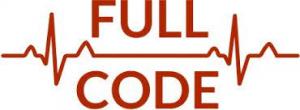GPF Foundation, Rosalind Franklin University and Minerva Medical Simulation, Inc. Release a Virtual Drug Overdose Tool
Helping Physicians and Medical Students Address a Blind Spot in Diagnosis and Treatment of Patients Experiencing Adverse Effects from Psychostimulant Use. .
Feedback from this case has been excellent. We are glad to be contributing to the awareness of this important problem.”
LAKE FOREST, ILLINOIS, USA, March 31, 2022 /EINPresswire.com/ -- A medical simulation tool, prepared in a collaboration between GPF Foundation, Rosalind Franklin University and Minerva Medical Simulation, Inc., is helping physicians, emergency room personnel and medical/health professions students diagnose and treat patients suspected to have overdosed on street drugs.— Michael McLinn
Under the guidance of Jim Carlson, Vice President for Interprofessional Education and Simulation at Rosalind Franklin University and Dr. Robin Dyer as the case author, the simulation is now available as a patient care simulation on the internationally used medical teaching application known as Full Code.
The simulation is essentially based on the experience of Greg Friedman, an otherwise healthy young adult who passed away unexpectedly during a psychotic break brought on by use of MDMA (street name molly or ecstasy) that was likely adulterated by other substances.
Since its release recently on the Full Code app the simulation based on Greg’s case has been used nearly 6600 times by clinical staff and students. When accessing the case users are immersed in providing care to a virtual patient suffering from an overdose. The simulation allows participants to collect information on the patient’s condition, order diagnostic testing, determine a diagnosis, make treatment decisions when interacting with a virtual patient, and receive feedback on what was done correctly and areas for improvement. This allows participants to make clinical decisions and learn without risk to actual patients.
“Feedback from this case has been excellent,” says Michael McLinn, Co-Founder & CEO of
Minerva Medical Simulation, Inc., Full Code’s parent company. “We are glad to be contributing to the awareness of this important problem.”
This Full Code simulation helps to address a critical “blind spot” that front line medical providers confront when attempting to accurately diagnose and effectively treat patients experiencing adverse effects of psychostimulant use.
It’s estimated that two million young adults (ages 18 to 25) used ecstasy/molly in 2021. Many don’t realize that they also may be ingesting fentanyl, “bath salts,” methamphetamine or ketamine. Fentanyl is significantly contributing to an increase in unintended deaths from adulterated recreational drugs. Even use of the “pure” drug may cause symptoms such as panic attack, depression, suicidal ideation, increase in body temperature and dehydration.
Inspiration and funding for the development of the simulation case was provided by the GPF Foundation with significant contributions made by a cohort of graduate-level fellows from Rosalind Franklin University of Medicine and Science, along with interns from Lake Forest College.
About Full Code
The Full Code app was launched after Minerva Medical Simulation was founded in 2016 with the mission of making medical simulation a daily practice for medical learners and professionals around the world. Their approach is to build the largest and highest-quality library of clinical scenarios—and to make them accessible in a format that reaches the widest possible audience. Learn more at Full-Code.com.
About The GPF Foundation
The GPF Foundation was founded in 2018 to save lives by supporting education, appropriate treatment and overall awareness of the dangers related to recreational drug use. In pursuit of this mission, GPFF focuses its work in two interrelated areas: 1) Educational Initiatives to mitigate the dangers of playing a modern day version of “Russian Roulette" with street drugs, including peer-to-peer outreach on the risks of MDMA (ecstasy or molly), particularly adulteration with other substances, and effective harm reduction strategies; and 2) Medical Initiatives that include development and dissemination of innovative clinical training tools for front line medical providers that address a critical “blind spot” in the accurate diagnosis and effective treatment of those experiencing adverse effects of psychostimulant use. Learn more at GPFFoundation.org.
Michael H BEIGHTOL
Coyote Marsh & Associates, Inc.
+1 312-339-0055
email us here
Legal Disclaimer:
EIN Presswire provides this news content "as is" without warranty of any kind. We do not accept any responsibility or liability for the accuracy, content, images, videos, licenses, completeness, legality, or reliability of the information contained in this article. If you have any complaints or copyright issues related to this article, kindly contact the author above.



